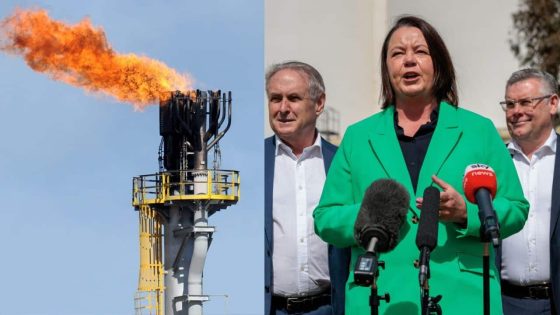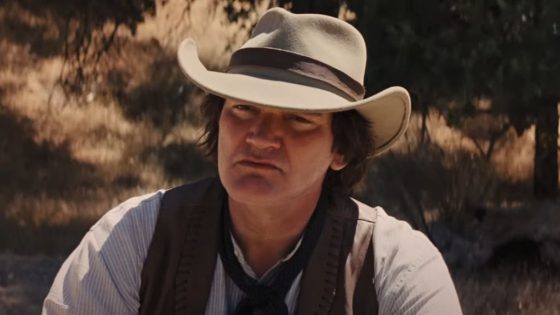Key Points
- The government has revealed it will keep expanding and investing in the gas industry for decades to come.
- The plan defies global calls to phase out fossil fuels and has drawn condemnation from experts and advocates.
- The Australian Chamber of Commerce and Industry welcomed the announcement, while gas stocks rose.
The Australian government has been criticised as “climate frauds” following its controversial decision to keep expanding and investing in the extractive gas industry for decades to come.
In defiance of global calls to phase out fossil fuels, Resources Minister Madeleine King that Australia would ramp up gas projects as part of its Future Gas Strategy, saying it was needed to meet surging demand.
While King indicated that the strategy would also support the Labor government’s commitment to transition to net zero emissions by 2050, she revealed gas extraction will likely continue beyond that date.
“Gas will remain an important source of energy through to 2050 and beyond,” she said, highlighting the need for continued exploration, investment and development in the sector.
‘Fast-tracking climate collapse’
The announcement has drawn the ire of climate experts, advocates and some politicians, many of whom condemned the Future Gas Strategy as failing to adequately address and respond to the climate crisis.
Jennifer Rayner, head of policy and advocacy at the Climate Council, said the government’s decision to double down on gas “ignores climate scientists, who warn we are at risk of smashing through 1.5C of warming”.
“More gas means more climate pollution and a more dangerous future, it’s that simple,” Rayner said.
“The Albanese government has a choice: cut climate pollution and seize the decade by scaling up clean energy, or support new gas projects. It can’t do both.”
The announcement of Australia’s Future Gas Strategy came just one day after the European Union’s Copernicus Climate Change Service released data showing that the global average temperature for the last 12 months — May 2023 to April 2024 — had once again reached new heights, putting 2024 on track to surpass 2023 as the hottest year on record.
Greens leader Adam Bandt said the Albanese government was “fast-tracking climate collapse” and “threatening people’s lives and livelihoods”.
“Labor are climate frauds, backing coal and gas past 2050 while scientists ring alarm bells and the planet boils,” Bandt said.
Greens environment spokesperson Sarah Hanson-Young expressed similar outrage.
“On the same day the world’s scientists are sounding the alarm that we’re heading off a climate cliff, Labor has slammed its foot on the gas in a naked attempt to pander to big gas,” she said.
“Labor have thrown any climate credibility out the window.”
A controversial strategy
The International Energy Agency (IEA) has previously warned there can be no new oil and gas infrastructure if the planet is to avoid surpassing 1.5 degrees Celsius of global heating, stressing the importance of “huge declines” in the use of fossil fuels such as coal, oil and gas to reach global climate targets.
“Achieving net zero emissions by 2050 will require nothing short of the complete transformation of the global energy system,” the IEA said.
Demonstrators gathered outside Prime Minister Anthony Albanese’s Sydney residence at Kirribilli House on Wednesday to protest against the Labor government’s policy on new coal and gas projects. Source: AAP / George Chan / SOPA Images / Sipa USA
More recently, IEA executive director Fatih Birol urged governments to “get behind clean energy transitions rather than hindering them.”
“Taking into account the ongoing strains and volatility in traditional energy markets today, claims that oil and gas represent safe or secure choices for the world’s energy and climate future look weaker than ever,” Birol said.
King, however, insisted Australia’s strategy is “based on facts and data, not ideology or wishful thinking”.
“Gas plays a crucial role in supporting our economy, with the sector employing 20,000 people across the country, including remote and regional communities,” King said.
Farmers, conservationists and Traditional Owners, however, have also denounced the Future Gas Strategy.
Lock the Gate, a national grassroots organisation that opposes coal mining and coal seam gas and fracking projects, described the government’s plan to open new industrial gas basins as “reckless”, saying it would damage land, water and communities.
Nurrdalinji Aboriginal Corporation (NAC), an organisation comprised of more than 60 native title holders from across the Northern Territory’s Beetaloo Basin, said drilling for more gas would further exacerbate the difficulties communities are facing amid a warming climate.
The Beetaloo Basin is home to a controversial proposed fracking project that experts have described as a “carbon bomb”, estimating that it will produce 1.2 billion tonnes of greenhouse gas emissions by 2050.
“It’s already getting hotter here, making it harder to live on Country. Already our people can’t keep their homes cool,” Djingili Elder Samuel Sandy, chair of NAC, said following King’s announcement on Thursday.
“Digging and burning more gas will make this worse.”
The strategy’s ‘only winners’
Underpinning the government’s defence of its Future Gas Strategy was the claim that unless Australia boosts its gas supply parts of the country could experience shortages within four years.
This warning was echoed by the Australian Chamber of Commerce and Industry (ACCI), who welcomed the government’s announcement.
“A competitive gas market is necessary to ensure affordable, reliable and secure energy for Australia to 2050 and beyond,” ACCI’s CEO Andrew McKellar said, urging the government to streamline and simplify approval processes for gas exploration and development.
“The warning bells have been sounding for long enough,” he said. “There could be severe shortages of gas as early as next year.”
Others, such as Tim Buckley, director of independent think tank Climate Energy Finance, suggested the narrative of a gas shortage has been fabricated by the gas lobby in an attempt to expand the industry’s profits.
Buckley also rejected the government’s claims that the Future Gas Strategy would help keep gas prices low for Australian consumers.
“Placing a long-term commitment to this hyper-expensive climate-polluting fuel at the core of transition policy does exactly zero to ensure affordable gas for domestic use here in Australia first,” he said in a statement.
“On the contrary, the gas cartel is the key culprit behind the domestic energy unaffordability that has smashed Australian households and businesses over the last several years and into 2024.”
Gas currently supplies 27 per cent of Australia’s energy needs and 14 per cent of its export income, with 90 per cent of national supply exported overseas.
“East Australia produces five times as much gas as we use domestically, most of it exported and then sold back to us at outrageously inflated prices,” Buckley said. “The only winners from the Future Gas Strategy are the multinationals.”
Gas stocks soared in the wake of the government’s announcement.
Stocks in Strike Energy, a Western Australian company engaged in the exploration and development of oil and gas resources, rose 9 per cent on Thursday.




